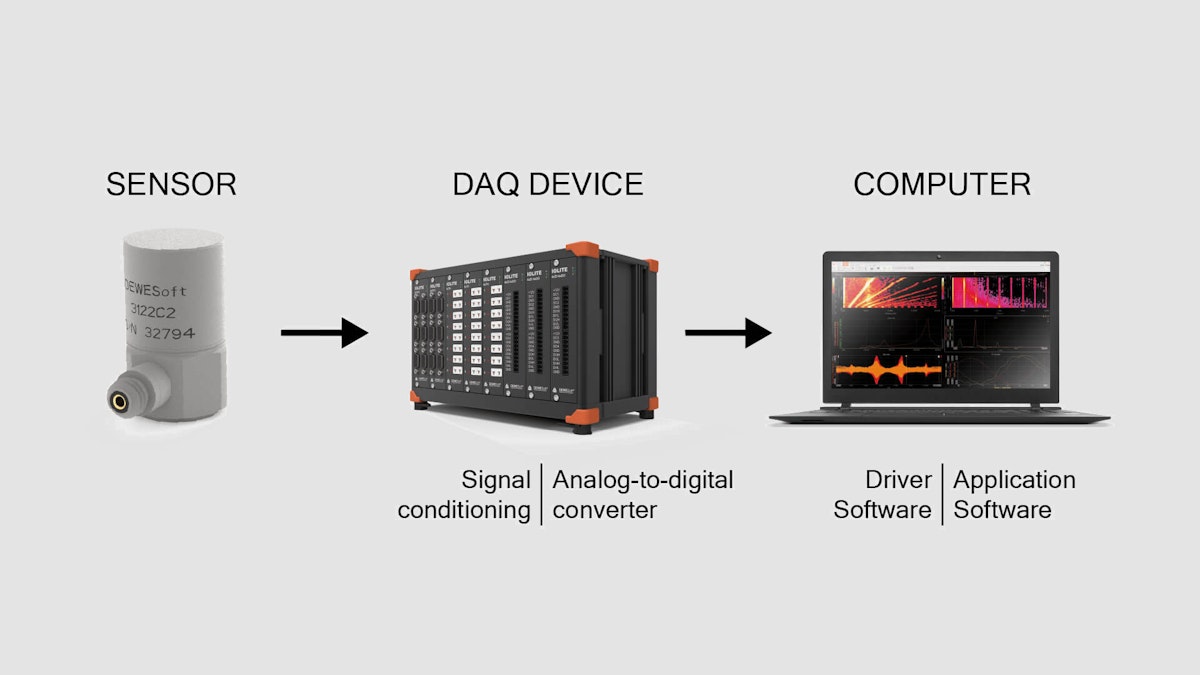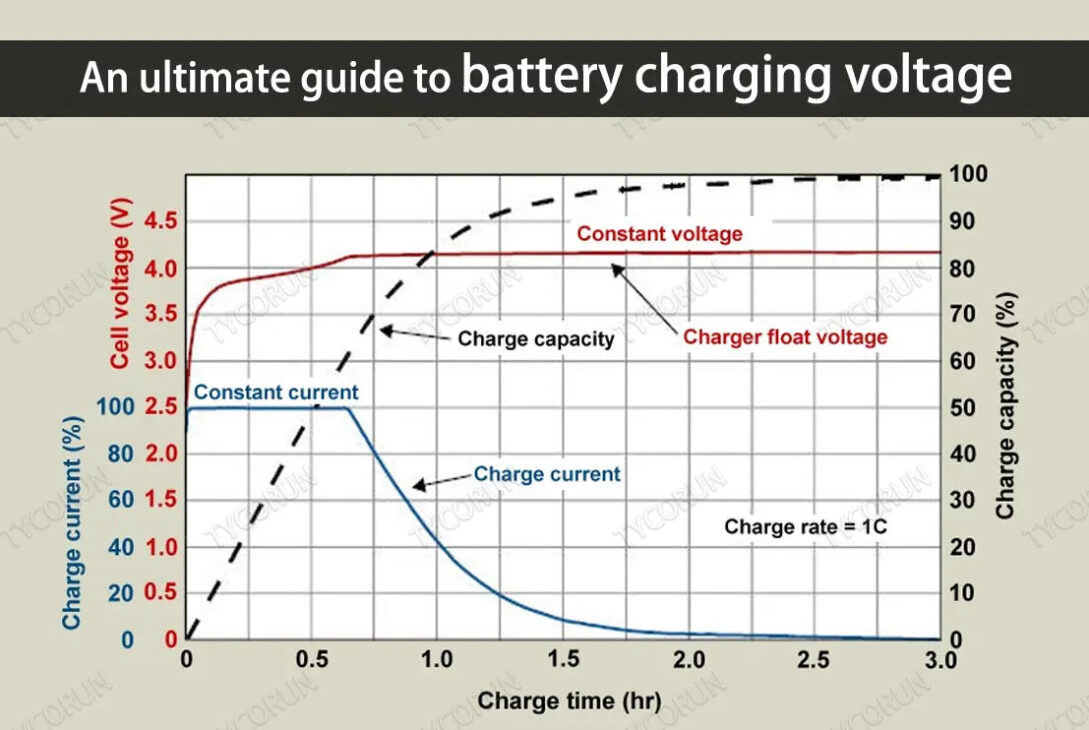A car battery typically has 12 volts of power. Car batteries generally provide a voltage of 12 volts to power the electrical systems in vehicles.
Car batteries play a crucial role in the efficient functioning of any vehicle. They provide the necessary power to start the engine and also supply electricity to various electrical components.
Understanding how car batteries work and their voltage is essential for maintaining and troubleshooting electrical issues in a vehicle.
We will delve into the details of car battery voltage, covering aspects such as its typical voltage, how it relates to the overall electrical system of a vehicle, and the factors that can influence the voltage level.
Additionally, we will explore the importance of choosing the correct voltage for car batteries and offer some tips for battery maintenance and longevity. So, let’s dive into the world of car battery voltage and its significance for your vehicle’s performance.

Credit: dewesoft.com
Importance Of Car Battery Voltage
The voltage of a car battery plays a crucial role in the overall performance of your vehicle. Understanding the significance of car battery voltage is essential for ensuring optimal operation and longevity of your vehicle’s electrical system.
In this blog post, we will explore the effect of car battery voltage on car performance and the importance of maintaining the proper voltage for your battery.
Effect On Car Performance
The voltage of a car battery directly impacts the performance of various electrical components within your vehicle.
From powering the ignition system and fuel injection to operating the lights, radio, and other accessories, the battery voltage is essential for proper functioning.
When the battery voltage is low, these components may not receive sufficient power, leading to sluggish performance and potential malfunctions.
Additionally, a weak or undercharged battery can have a negative impact on the performance of the starter motor. Insufficient voltage may result in slower cranking or even failure to start the engine.
This can be a frustrating experience, especially during cold weather or when you need to get your vehicle up and running quickly.
On the other hand, if the battery voltage is too high, it can cause excessive strain on the charging system and other electrical components. This can lead to overheating, damage, and even premature failure.
Therefore, maintaining a proper voltage level is crucial for ensuring optimal car performance and preventing unnecessary wear and tear.
Significance Of Proper Voltage
Maintaining the proper voltage for your car battery is not only essential for performance but also for the longevity of the battery itself. Excessive discharge or overcharging can significantly reduce the lifespan of the battery.
By regularly monitoring and maintaining the voltage at the recommended level, you can extend the overall life of your car battery.
This is particularly important if your vehicle sits idle for extended periods. A discharged battery can develop sulfation, which can lead to permanent damage and reduced capacity.
By keeping the battery voltage within the recommended range, you can prevent these issues and ensure that your battery is always ready to provide reliable power when you need it.
Overall, understanding and maintaining the proper voltage for your car battery is crucial for optimal car performance and the longevity of your vehicle’s electrical system.
Regularly checking the voltage and addressing any issues promptly can prevent inconvenient breakdowns and costly repairs.
Take the necessary steps to ensure that your battery voltage remains within the recommended range, and enjoy worry-free driving with a fully functional electrical system.
Standard Voltage For Car Batteries
In this section, we will delve into the standard voltage for car batteries. Understanding the voltage range and factors that affect it can help you make informed choices when it comes to maintaining your car’s battery.
Typical Voltage Range
The typical voltage range for car batteries is 12 to 14.5 volts. The majority of car batteries you encounter will fall within this range.
A fully charged battery usually has a voltage around 12.6 to 12.8 volts, while a discharged battery may measure around 11.9 volts or lower.
Bear in mind that the voltage of a car battery can vary depending on its state of charge, temperature, and overall health.
When the engine is running and the alternator is functioning correctly, the voltage can rise to around 13.5 to 14.5 volts, ensuring the battery is charged and ready to meet the electrical demands of the vehicle.
Factors Affecting Voltage
Several factors can impact the voltage of a car battery. These include:
- State of Charge: As mentioned earlier, the state of charge directly affects the voltage. A fully charged battery will have a higher voltage compared to one that is partially discharged.
- Temperature: Temperature plays a significant role in battery performance. Cold temperatures can reduce the voltage output, while heat can increase it. It is important to note that extreme temperatures can affect battery life and lead to premature failure.
- Battery Age: Over time, car batteries tend to lose their capacity to hold a charge, resulting in lower voltage readings. It is recommended to replace the battery if it is more than three to five years old, depending on the manufacturer’s guidelines.
- Electrical Loads: The electrical loads in your vehicle, such as lights, air conditioning, and other accessories, can put strain on the battery and slightly lower its voltage. However, a healthy charging system should be able to compensate for this and maintain the battery voltage within an acceptable range.
Being aware of these factors allows you to gauge the health of your car battery and take necessary steps to ensure its optimal performance.
Regularly checking the voltage, especially during extreme weather conditions, can help you prevent unexpected battery failures.
Measuring Voltage Of A Car Battery
To measure the voltage of a car battery, you can use a multimeter set to the DC voltage range. A fully charged car battery usually measures around 12. 6 to 12. 8 volts.
However, a voltage reading of 12. 4 volts or lower indicates that the battery may need recharging or replacing.
Using A Multimeter
Interpreting Voltage Readings
Low voltage may indicate a battery issue, while high voltage could point to overcharging.
Impact Of Voltage On Starting The Car
Have you ever wondered how many volts a car battery has and how it impacts starting your vehicle? Understanding the voltage of a car battery and its role in the ignition process is crucial for maintaining optimal performance.
Let’s delve into the world of car battery voltage and explore its impact on getting your vehicle up and running.
Role In Ignition Process
The voltage of a car battery plays a pivotal role in the ignition process. When you turn the key, the battery supplies the necessary voltage to the starter motor, which then cranks the engine.
This initial surge of voltage is essential for the combustion process to begin, ultimately starting the car.
Relation To Cranking Amps
The voltage of a car battery is closely related to its cranking amps. Higher voltage leads to better cranking amps, providing the necessary power to start the engine, especially in colder conditions or with an older vehicle.
Therefore, maintaining the correct voltage is critical for ensuring your car starts reliably in varied conditions.
Effects Of Low Voltage On A Car Battery
Car batteries are an essential component of a vehicle’s electrical system, providing the power needed to start the engine, operate lights, and run various electrical accessories.
The voltage of a car battery significantly impacts its performance and the overall health of the vehicle. Low voltage can have detrimental effects on a car battery, leading to diminished performance and potential damage to electrical components.
Understanding the impact of low voltage can help car owners take proactive measures to maintain the health and functionality of their vehicle’s battery.
Diminished Performance
Diminished Cranking Power: Low voltage in a car battery results in decreased cranking power, making it more challenging for the engine to start.
This can lead to slow or labored starting, especially in cold weather conditions, and may eventually cause the vehicle to fail to start altogether.
Reduced Electrical Output: Low battery voltage can lead to inadequate electrical output, impacting the performance of various electrical systems such as headlights, power windows, and entertainment systems.
Diminished voltage may cause lights to appear dimmer and accessories to operate at suboptimal levels.
Potential Damage To Electrical Components
Risk of Voltage Drops: Low voltage increases the risk of voltage drops in the vehicle’s electrical system, potentially causing damage to sensitive electronic components.
Voltage drops can lead to erratic behavior in electronic systems and may result in malfunctions or permanent damage.
Charging System Strain: Constantly operating with low voltage can place undue strain on the vehicle’s charging system, including the alternator.
Prolonged strain can lead to premature wear and potential failure of the charging system, necessitating costly repairs.

Credit: bosshorn.com
Preventing Voltage-related Issues
A car battery typically operates at 12 volts, essential for powering the vehicle’s electrical systems. Monitoring the battery’s voltage can help prevent potential voltage-related issues, ensuring proper functioning of the car’s electrical components and minimizing the risk of breakdowns.
Regular maintenance and voltage checks are crucial in maintaining optimal performance and reliability.
Regular Maintenance Practices
Regular maintenance of car batteries is crucial for optimal performance.
- Keep the battery terminals clean and free from corrosion.
- Inspect the battery for any signs of damage or leaks regularly.
- Ensure the battery is securely fastened in place to prevent vibrations.
Monitoring Voltage Levels
Monitoring voltage levels is key to preventing battery-related problems.
- Utilize a digital multimeter to check the battery voltage regularly.
- Ensure the voltage stays within the recommended range for your car model.
- If you notice any fluctuations in voltage, it may indicate potential issues.
Signs Of Voltage Problems
A car battery provides the electrical energy your vehicle needs to start the engine and power its electrical components.
Over time, a car battery can experience voltage problems, leading to issues with starting the car, dimming lights, or other electrical malfunctions.
Warning Indicators
When your car battery is experiencing voltage problems, there are several warning indicators to look out for:
- The engine cranks slowly or struggles to start.
- The headlights or interior lights appear dimmer than usual.
- Power windows or other electrical components operate slower than normal.
- The battery warning light on the dashboard illuminates.
- You notice a clicking sound when you turn the ignition key.
- Electrical malfunctions such as the radio or power locks not working properly.
When To Seek Professional Help
If you encounter any of the warning signs mentioned above, it is essential to address the voltage problems as soon as possible.
Ignoring these issues can lead to a dead battery or even further damage to your car’s electrical system.
While there are certain DIY methods to test and troubleshoot a car battery, it is recommended to seek professional help in diagnosing and fixing voltage problems.
| DIY Battery Test | Professional Services |
|---|---|
| Using a multimeter to measure voltage | Comprehensive battery testing |
| Checking and cleaning battery terminals | Expert diagnosis of electrical system |
| Inspecting battery cables for damage | Replacement of faulty components |
By seeking professional help, you can ensure accurate diagnosis and the most effective solution to your car’s voltage problems.
Remember, addressing voltage issues early can help you avoid unexpected breakdowns and keep your vehicle running smoothly.
Conclusion And Recommendations
The voltage of a car battery is typically around 12 volts. It is crucial to regularly check the voltage and ensure it is at the optimal level for the smooth functioning of your vehicle.
Regular maintenance and monitoring of the battery voltage are recommended to prevent any unexpected breakdowns.
Summary of Importance:
Understanding the voltage of your car battery is crucial for maintaining its optimal performance and ensuring a smooth driving experience.
The voltage of a car battery determines its ability to start the engine, power the electrical system, and support various accessories.
As we’ve discussed in this blog post, the typical voltage of a car battery is around 12.6 volts when fully charged.
Any deviation from this range can indicate a potential problem that may require attention.
Tips for Maintaining Optimal Voltage:
- Regularly check your car battery’s voltage using a voltmeter to detect any potential issues early on.
- Keep your car battery clean by removing any corrosion from the terminals. This ensures a good connection and helps maintain optimal voltage.
- Avoid leaving your car’s electrical systems running for extended periods when the engine is not running, as it can drain the battery and reduce its voltage.
- If your car battery frequently fails to hold its charge or drops below the recommended voltage range, consider consulting a professional or replacing the battery.
- During winter months or periods of inactivity, use a battery maintainer or tender to prevent the battery from losing voltage due to cold weather or prolonged disuse.
By following these simple tips, you can ensure your car battery maintains optimal voltage, promoting longevity and reducing the likelihood of unexpected breakdowns.

Credit: www.tyreplus-me.com
Frequently Asked Questions Of How Many Volts Is A Car Battery
How Many Volts Is A Typical Car Battery?
A typical car battery usually has 12 volts. This voltage is required to start the engine and power the electrical systems.
It’s important to ensure your battery is in good condition to maintain optimal performance.
What Happens If A Car Battery Has Low Voltage?
Low voltage in a car battery can lead to difficulty starting the engine, dimming lights, and issues with electrical components.
Regular maintenance and timely replacement can prevent these problems and ensure your vehicle runs smoothly.
Can A Car Battery’s Voltage Be Tested At Home?
Yes, you can use a multimeter to test the voltage of a car battery at home. Simply connect the multimeter to the battery terminals and ensure the reading is around 12 volts for a properly functioning battery. If the voltage is significantly lower, it may need to be replaced.
How Does Cold Weather Affect Car Battery Voltage?
Cold weather can reduce a car battery’s voltage, making it more challenging for the battery to deliver power to start the engine.
It’s essential to be mindful of this effect, particularly during winter, and consider techniques like using a trickle charger or a warmer to maintain the battery’s performance.
Conclusion
Understanding the voltage of a car battery is vital for its performance. With various voltages available, choosing the right one ensures optimal function for your vehicle.
Regular maintenance and monitoring of voltage levels are key to avoiding potential breakdowns. Stay informed to keep your car running smoothly.

Sudatta is a passionate automotive enthusiast and expert in the field. With a keen eye for detail and a love for all things automotive, he shares insightful articles and reviews to ignite the automotive passion in readers.




